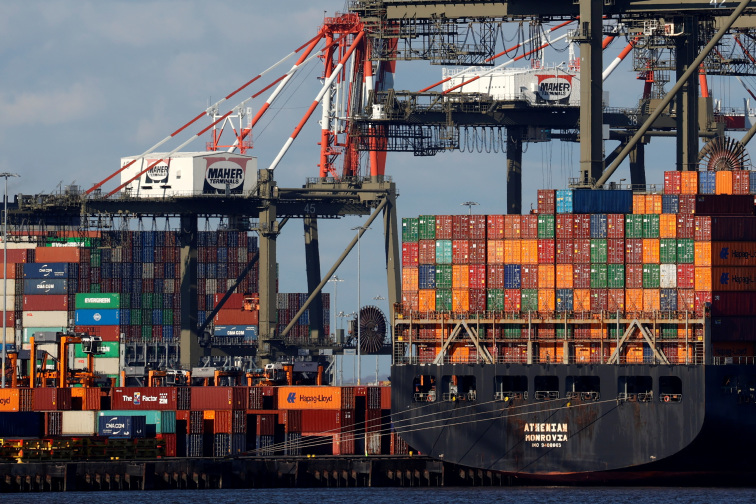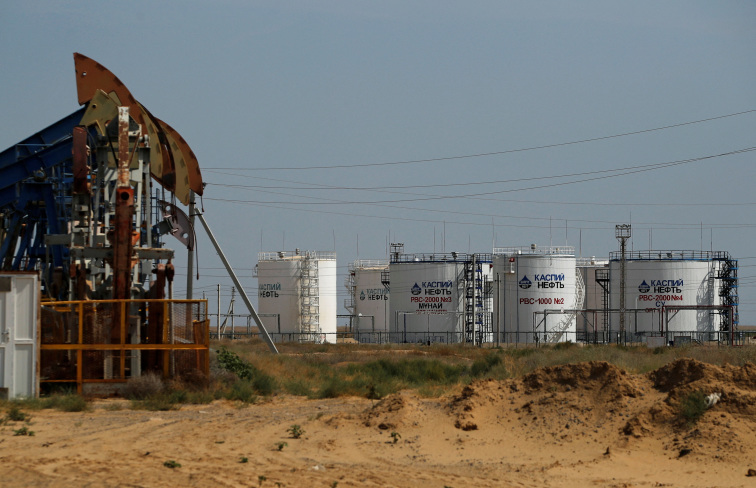An oil and gas industry worker walks during operations of a drilling rig at Zhetybay field in the Mangystau region, Kazakhstan, November 13, 2023. (REUTERS/Turar Kazangapov)
SINGAPORE (Reuters) -Oil prices extended gains on Tuesday as the market eyed U.S. output concerns in the aftermath of Hurricane Francine and expectations of lower U.S. crude stockpiles.
Brent crude futures for November were up 36 cents, or 0.5%, at $73.11 a barrel, as of 0635 GMT. U.S. crude futures for October climbed 53 cents, or 0.8%, to $70.62 a barrel.
Both contracts settled higher in the previous session as the impact of Hurricane Francine on the output in the U.S. Gulf of Mexico countered Chinese demand concerns ahead of the U.S. Federal Reserve's interest rate cut decision this week, which should prove positive for investor sentiment in oil.
More than 12% of crude production and 16% of natural gas output in the U.S. Gulf of Mexico remained offline, according to the U.S. Bureau of Safety and Environmental Enforcement (BSEE) on Monday.
"Oil prices managed to recover slightly ... (An) extreme bearish state over the past weeks called for some near-term stabilisation, with prices previously touching their lowest level since 2021," said Yeap Jun Rong, market strategist at IG.
"But a weaker-than-expected run in China's economic data lately could still be a source of caution, while the lead-up to the upcoming FOMC interest rate decision may limit some risk-taking," Yeap added, referring to the Federal Open Market Committee.
The Fed is expected to start its easing cycle on Wednesday, with Fed funds futures showing markets are now pricing in a 69% chance the central bank will cut rates by 50 basis points.
"Growing expectations of an aggressive rate cut boosted sentiment across the commodities complex," ANZ analysts said in a note, adding that supply disruptions also supported oil markets.
A lower interest rate will reduce the cost of borrowing and can potentially lift oil demand by supporting economic growth.
Investors also eyed an expected drop in U.S. crude inventories, which likely fell by about 200,000 barrels in the week ended Sept. 13, based on a Reuters poll. [EIA/S]
Still, lower-than-expected demand growth in China, the world's largest crude importer, have capped price gains. China's oil refinery output fell for a fifth month in August amid declining fuel demand and weak export margins, government data showed on Saturday.
(Reporting by Jeslyn Lerh; Editing by Christian Schmollinger, Sonali Paul and Sherry Jacob-Phillips)











News magazine bootstrap themes!
I like this themes, fast loading and look profesional
Thank you Carlos!
You're welcome!
Please support me with give positive rating!
Yes Sure!